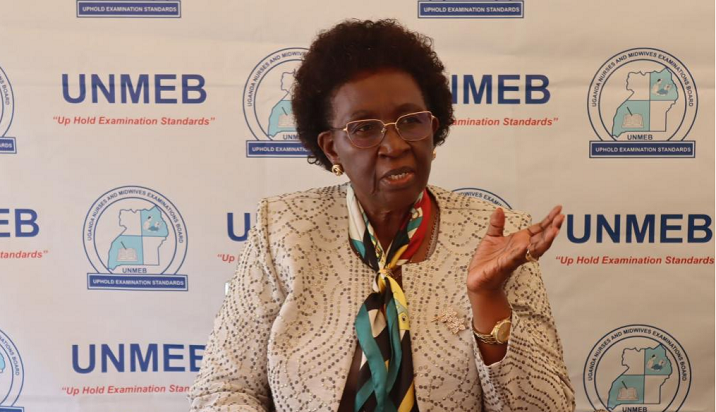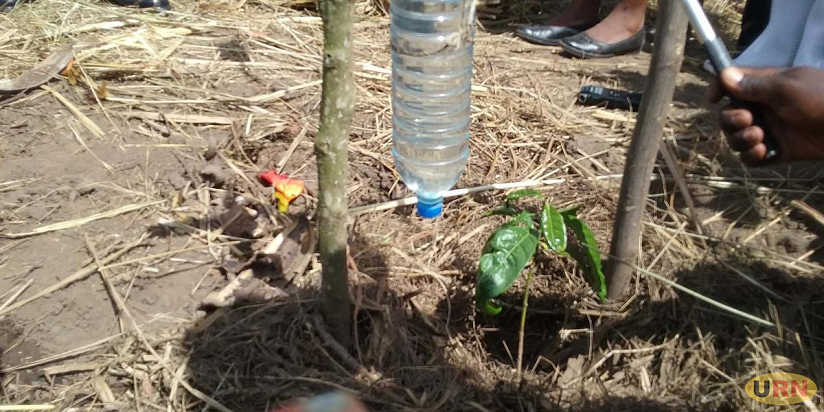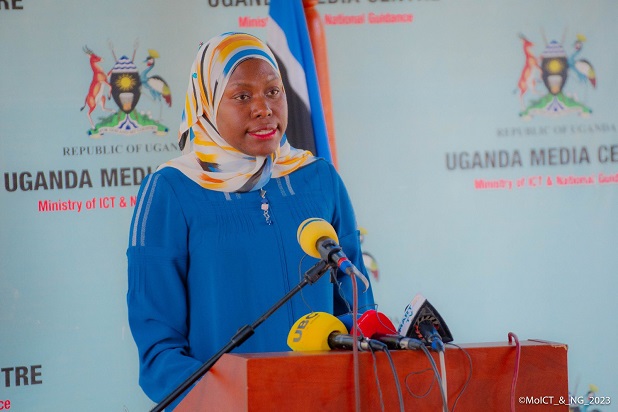Helen Mukakarisa Kataratambi, the Uganda Nurses and Midwives’ Examinations Board (UNMEB) Executive Secretary
The Ministry of Education and Sports is set to review the health training curricula and lower admission requirements for critical health programs in a move to attract more students.
Helen Mukakarisa Kataratambi, the Executive Secretary of Uganda Nurses and Midwives Examinations Board (UNMEB) revealed this during a press briefing on their 34th examination series.
Mukakarisa was responding to a query from our reporter regarding the reasons why enrollment in some programs such as diplomas in palliative care nursing, pediatric and child health nursing, and mental health nursing, is so low.
She pointed out that the current entry requirement for the courses has been limiting the number of people who apply for them.
According to the information that is now available, just 13, 10, and 18 of the 53,573 nursing and midwifery students who registered are taking the exams in palliative care, pediatrics, and mental health, respectively. The majority of students prefer nursing and midwifery on both certificate and diploma levels.
Officials at UNMEB note that the government has demonstrated that there is a need to produce more health workers in these areas due to a large number of children being born, ongoing establishment and expansion of children’s wards in hospitals, and an increase in the number of patients with mental health problems among other factors.
While there is a growing need for palliative care, many health facilities can’t deliver vital treatments like dispensing oral morphine because non-specialist nurses lack such skills.
In a recent interview with our reporter, Mark Donald Mwesiga, the Chairperson of the Palliative Care Association of Uganda, noted that 77 out of 226 health facilities can ably provide the care needed by patients in critical pain.
With these gaps, Mukakarisa notes they had to change some of the admission requirements in order to attract more students. For instance, the Executive Secretary points out that in the past, a nursing diploma was the minimum requirement to enroll in a program leading to a diploma in pediatrics and child health nursing. However, going forward, they will need to possess at least a nursing certificate.
Along with lowering the entry requirements, the government will also fully sponsor these important health programs but a pre-entry interview will be used to weed out applicants who cannot match the high demands of the course in order to ensure quality.
Juliet Nassiwa, the Acting Deputy Executive Secretary-UNMEB, says that the board has already delivered the examination to different stations and deployed 2,055 competent examination staff to monitor the exams.
Nassiwa adds that the board has also implemented additional measures to guard against any unforeseen occurrence of malpractice and leakage due to current trends of malpractice that have been registered in the previous series.
In a related event, unlike the previous examination series where the board encountered problems with students who were registered but were underage, this time around this was resolved long before the registration for the exams. One must be at least 18 years old to be permitted to take any exams at the health training facility.
-URN





